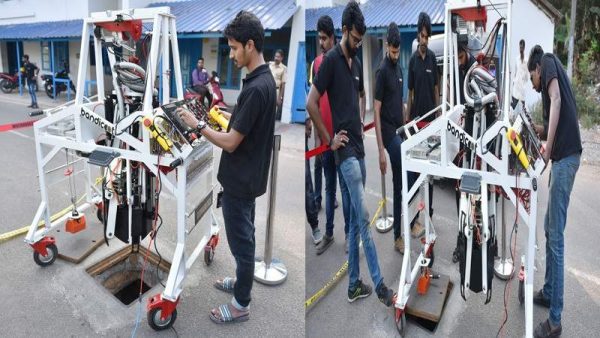CBCS: A new struggle to be tackled at DU

CBCS: A new struggle to be tackled at DU
The 2014- 2015 batch of Delhi University was lucky enough to not be slaughtered by the experiments of Delhi University pundits. Even after the failure of the Four Year Undergraduate Programme (FYUP) which had set back the academic standards of a batch, Delhi University seems to be on, for more such experiments to complicate the life of the students. Even after the protests that have been done by the DUTA and students, Delhi University intends to go forward and is planning to plate Choice Based Credit System (CBCS), directed by UGC/MHRD, in coming academic session.

CBCS is a western educational idea introduced to make the curriculum flexible and has been experimented before in many universities across the India. This system ensures that the syllabus would be broken down into small entities substantially reducing the syllabus. The students would be awarded grades and GPAs instead of exact marks. However, the system would also reduce the quality of students and deprive them of options.
The students would have knowledge of each subject in bits and pieces, without any thorough knowledge of any particular subject. Popular in universities like USA, UK, and Japan where education happens at university centres than individual colleges, the system has failed to make success in many states in India including Tamil Nadu, Kerala and Himachal Pradesh. The system has failed to work effectively leaving both students and teachers in total chaos.

We asked around few students and teachers about their perspective on this new bomb that is to be thrown on the students of Delhi University and these were their responses:
Rashmi Ralhan from IP College for Women says, “I think it is just a strategy to benefit private sector and it would lead to downfall of the education along with loss of job-security.”

Sharique Nadeem, Ram Lal Anand College, says “One of the biggest attacks on the central universities. The same FYUP drama will be re-enacted again where students will be made guinea pigs of the whims and fancies of a few pro-establishment professors who will promote their career by producing substandard courses, curriculum and policy in the next 6 months”
Shipra Singh, Kirorimal College says, “We have not been informed of the proper process regarding implementation of CBCS, no student or teacher consultation has been involved in the implementation. It seems to be forced.”
Abha Dev, DU Executive Council Member and teacher at Miranda House College says, “We should learn from FYUP fiasco. No academic restructuring should be rushed and implemented without involving teachers and students. At DU, semester system and FYUP were implemented by brushing aside feedback of teachers and without any preparation at the ground level in terms of necessary infrastructure. The worst victims of such hurried “reforms” are students.

In Delhi University, where every year over 56,000 students take admission in regular courses, these rushed mindless “reforms” have jeopardized careers of lakhs of students. It is unfortunate to see that the UGC Guidelines on Adoption of Choice Base Credit System (2014) are silent on the real issues ailing higher education, such as lack of infrastructure and recruitment of permanent faculty. It claims that the semester system (on which CBCS is based) is working well, without putting forward any review. The document is also silent on questions of quality and equity.
Teachers and students at DU have been demanding withdrawal of semester system. It has deeply diluted academic and examination standards. It has reduced the teaching time, over-burdened the university and colleges with examination work, reduced time for in-depth study and self-study and failed to cater to the needs of students from disadvantaged backgrounds. Before implementing CBCS, it is important to review semester system. Further, the CBCS replicates many features of the failed-FYUP pattern of courses. We have seen that Common Foundation courses were disastrous. The structure diluted Honours Courses. The cafeteria approach, which was integral to FYUP and which CBCS also adopts, led to marginalization of basic humanities, social science and science courses.
The UGC/MHRD has ordered Universities to implement CBCS from the academic year 2015-16. This order should be withdrawn and instead the MHRD/ Standing Committee, Parliament should review semester system and CBCS on the basis of feedback of students and teachers. The questions of quality and equity have to be thoroughly investigated before it is implemented”
Kirti Sachdeva, ADHOC DU, says “It is only good when students are aware of the benefits and loopholes of all the available fields but unfortunately they are not aware and wise enough to choose their own syllabus”
Nandita Narain, President DUTA says, “Choice Based Credit System came to DU titled as FYUP; CBCS is exactly like FYUP. FYUP has been an absolute disaster for the students. The UGC letter can be seen flaunting that the semester system has been a great success, but the reality is that it has been a great failure”
Institutions began to change from marks to grades under the pretext of distressing the students but it has been just about diluting the quality of the syllabi. DU Times, one of the Campus News Portal of Delhi University has launched an online petition against the introduction of CBCS in Delhi University at their website www.dutimes.com. Many students and well-wishers have signed the petition in protest of the CBCS system. Now let see if it shapes or not.







